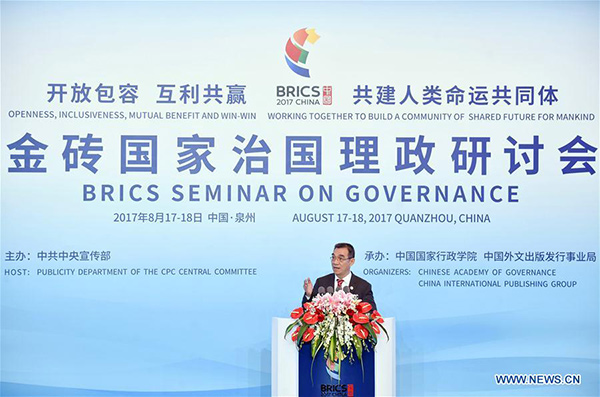

 |
|
Peking University professor and former World Bank chief economist Justin Lin Yifu speaks at the BRICS Seminar on Governance in Quanzhou, East China's Fujian province, Aug 17, 2017.[Photo/Xinhua] |
Peking University professor and former World Bank chief economist Justin Lin Yifu said that among nearly 200 developing economies after World War II, only two have transitioned from low-income to high-income economies. China may become the third by 2025.
Sharing the findings of his latest study, Lin said the main reason developing economies remained trapped in middle-income or low-income status was that most of them followed Western mainstream economic theories, either structuralism or neoliberalism, and failed to maintain a balance between the market and the state.
Structuralism advocates excessive intervention, while neoliberalism champions "laissez faire," he said.
"The secret of China's success is its use of both 'invisible hand' and 'visible hand,'" Lin said. Only when the market and the state play their respective roles can technological innovation and industrial upgrading proceed smoothly, he said.